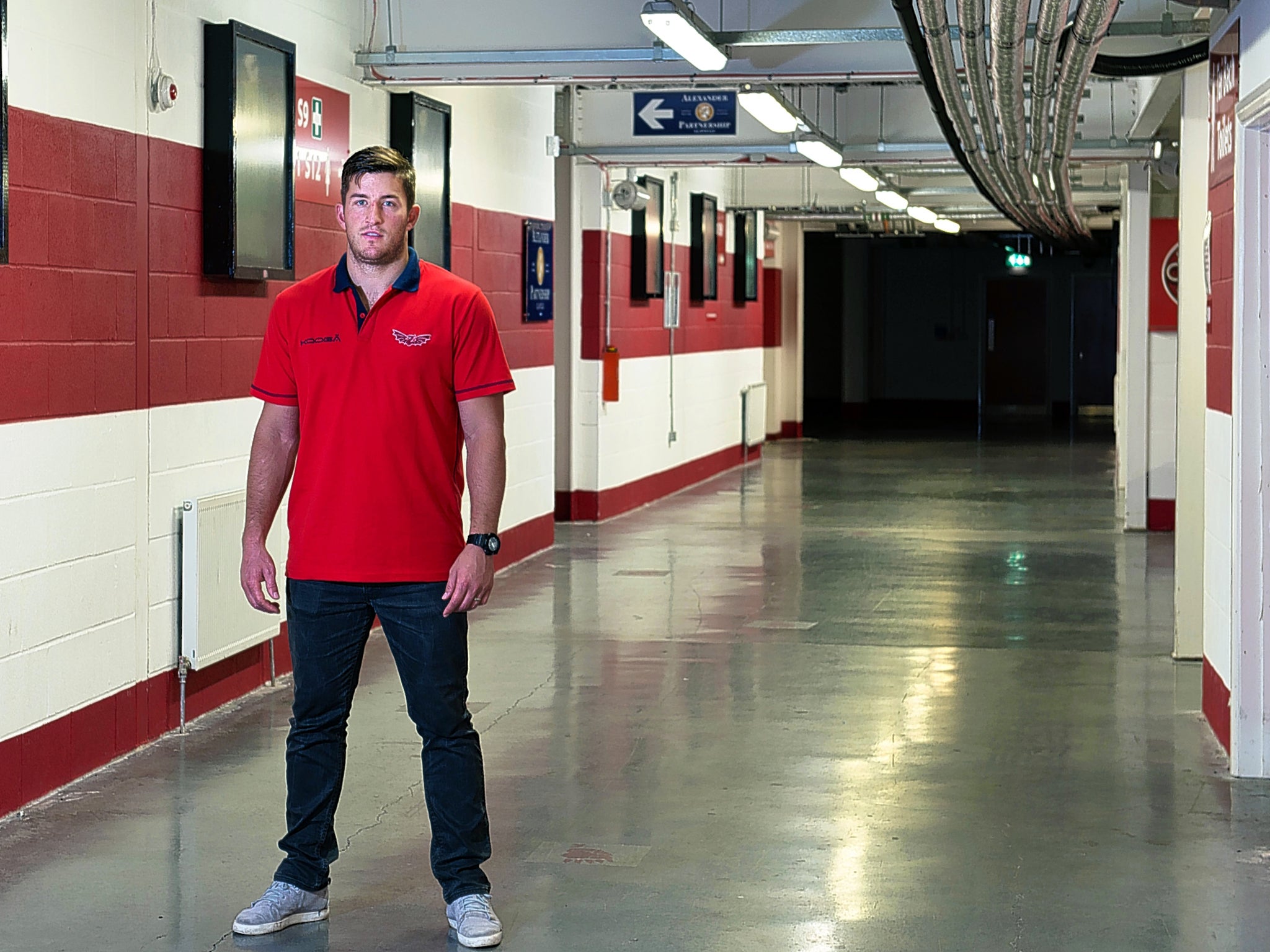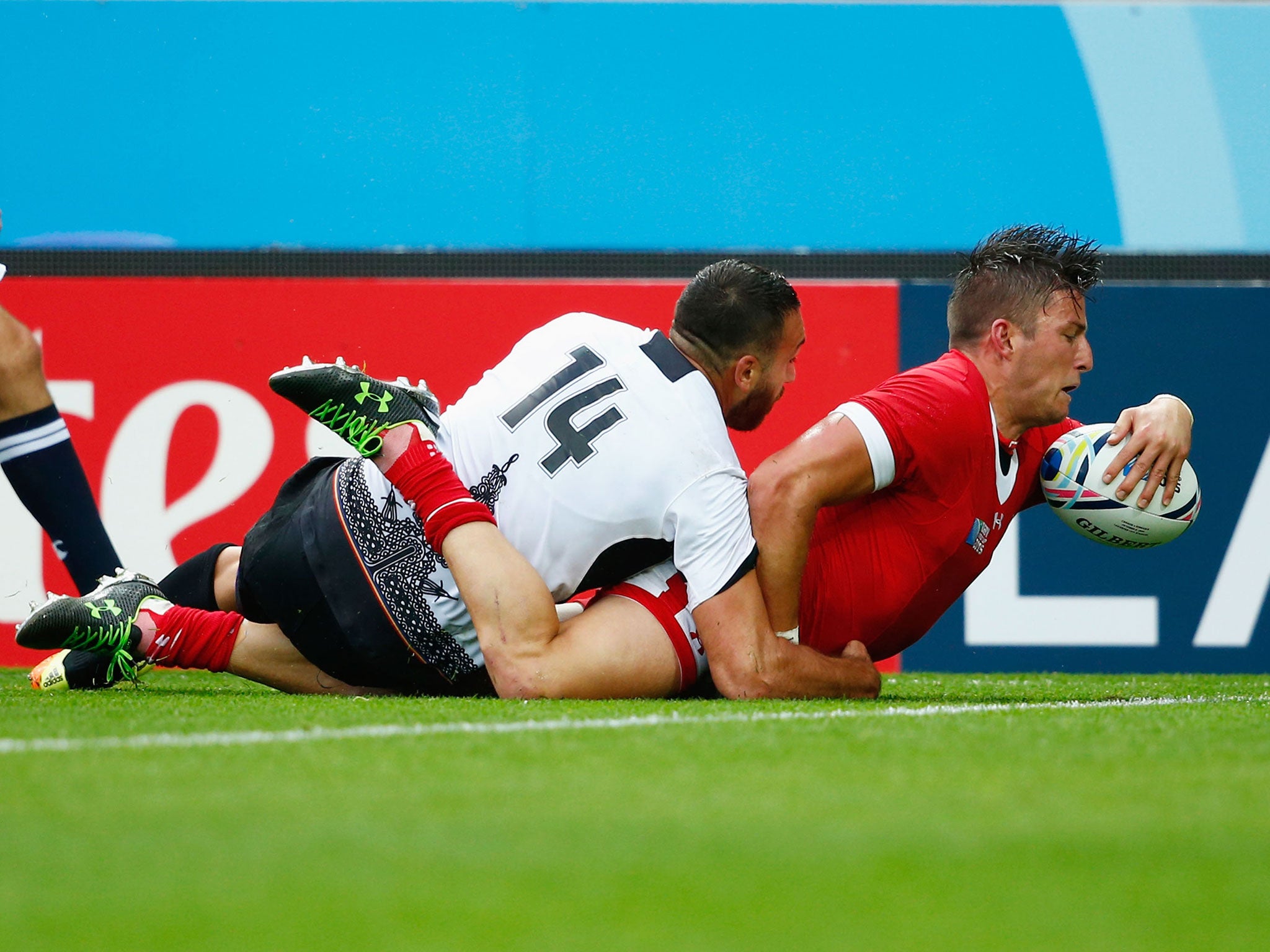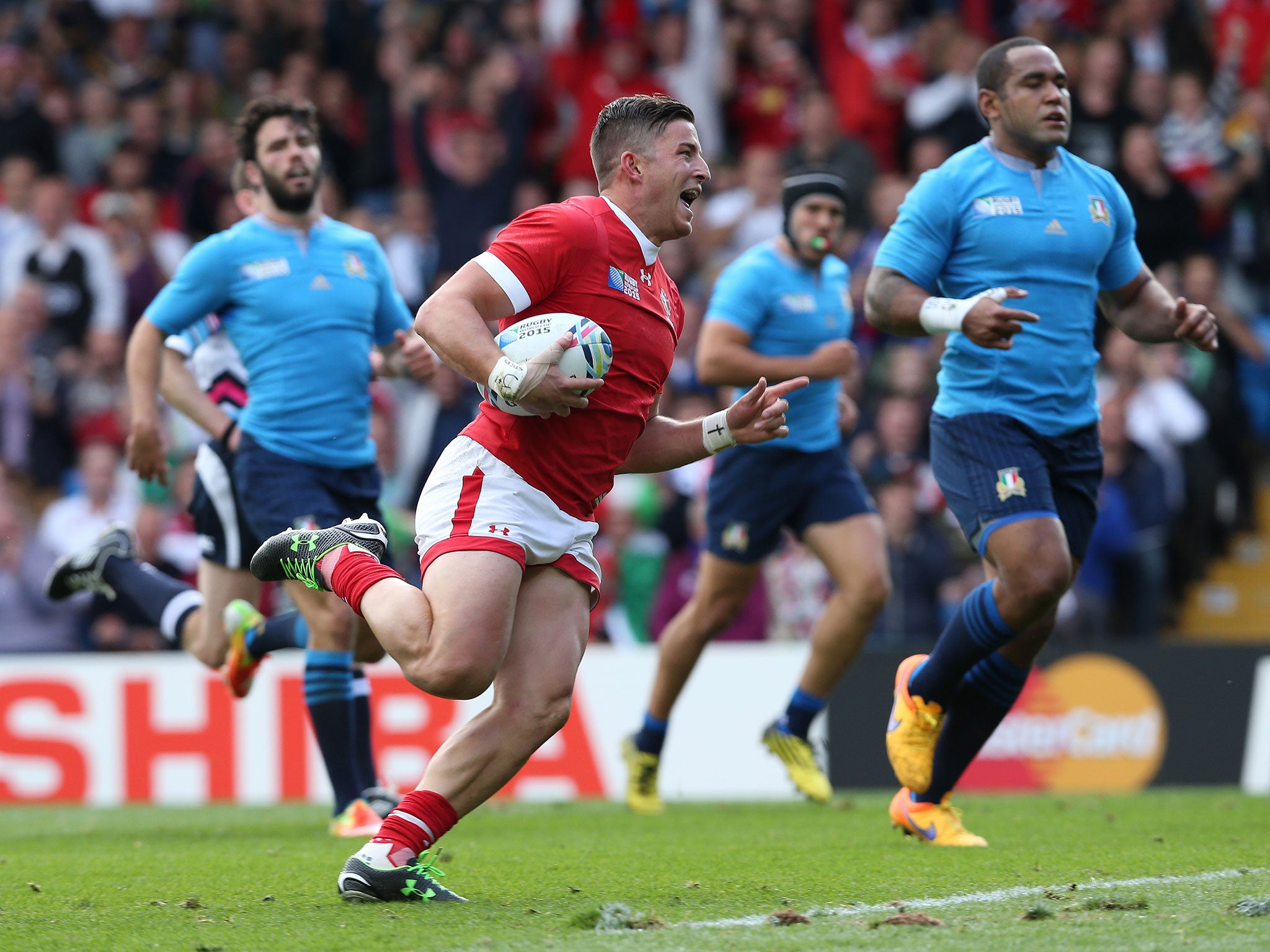Canada’s hero DTH van der Merwe out to set Scarlets alight
From the Western Cape to Llanelli via Saskatchewan and Glasgow, Van der Merwe’s rugby journey has been an unusual one. Chris Hewett meets the World Cup wing – and firefighter – hoping to spark a revival in West Wales

Your support helps us to tell the story
From reproductive rights to climate change to Big Tech, The Independent is on the ground when the story is developing. Whether it's investigating the financials of Elon Musk's pro-Trump PAC or producing our latest documentary, 'The A Word', which shines a light on the American women fighting for reproductive rights, we know how important it is to parse out the facts from the messaging.
At such a critical moment in US history, we need reporters on the ground. Your donation allows us to keep sending journalists to speak to both sides of the story.
The Independent is trusted by Americans across the entire political spectrum. And unlike many other quality news outlets, we choose not to lock Americans out of our reporting and analysis with paywalls. We believe quality journalism should be available to everyone, paid for by those who can afford it.
Your support makes all the difference.Daniel Tailliferrer Hauman van der Merwe does not, as a general rule, make life easy for himself. A South African wing who plays his international rugby for Canada – he was one of the team’s few full-time professionals at the recent World Cup – he has just left Glasgow, whose status as reigning Pro 12 champions owes much to his try-scoring instincts, for the Llanelli-based Scarlets, who have not been champions of anything for more than a decade. Oh, one other thing: when his sporting career ends, he plans to fight fires for a living.
Under the circumstances, he can be forgiven for taking a short cut with his own moniker. He prefers to be known as DTH, but is happy to be called D by those in a hurry. There are good and obvious reasons for this. As one wag said while Van der Merwe was enjoying one of his frequent World Cup tear-ups (he found his way across the opposition whitewash in all four of his adopted country’s pool outings): “By the time the commentator completes his name, he’s already made the touchdown.”
Van der Merwe emerged from the global gathering with a sky-high reputation: indeed, there was no conclusive evidence that any left wing had performed better – not George North of Wales or Juan Imhoff of Argentina, not even Drew Mitchell of Australia or the fearsome Julian Savea of New Zealand. The tries he put past the Irish, the Italians, the French and the Romanians were jewels of their kind, equally eye-catching in their contrasting ways, and there were times when the Springboks, albeit blessed with Bryan Habana, must have wondered how they let him slip away to North America. Not least because he looked for all the world like a modern-day Carel du Plessis.

Yet the World Cup experience left the 29-year-old from Worcester in the Western Cape – a town of no particular distinction, although the great novelist JM Coetzee lived there as a boy – feeling as flat as the proverbial pancake.
“To me, it was a really frustrating tournament,” he says. “I don’t want to sound off about things or come across badly, but the schedule was terrible. Right from when I watched the Boks win the title in 1995 – I was only nine at the time, but I still remember every detail about who did what and where I was when they were doing it – I wanted to play at a World Cup. I’ve been lucky enough to do it three times now, but for the smaller teams like Canada things don’t get any better when it comes to the fixture list.”
It is not hard to see his point: in the space of 11 days, the Canucks played Italy in Leeds, France in Milton Keynes and Romania in Leicester. The fact that England left the tournament at much the same moment, despite the advantage of playing from weekend to weekend with proper breaks between outings, says more about red-rose inadequacies than it does about the fairness of the match programme.
“I’m grateful for the opportunities I’ve been given,” Van der Merwe continues, “but it leaves me feeling disappointed that it’s so difficult for us to give of our best because of the way the games fall.
“At least we showed some ambition. We wanted to play a brand of rugby that people would enjoy watching and while I guess we should have been more conservative at times – some of our decision-making meant that we didn’t handle the momentum shifts in our games as well as we could have done – we went into the tournament feeling that if we wanted to get close to beating a tier-one nation rather than just limit the damage, we had to play some ball. We did that, I think.”
At no stage during his days in South Africa did he see himself as a Test back in the making. He was an enthusiastic player and by no means an unsuccessful one – “I made the Under-16s provincial team when I was 15, and that was a big thing,” he says – but it was only after his father, a doctor, upped sticks and resettled in Saskatchewan that the possibility of a serious sporting career occurred to the young DTH.
“If I’m being honest with myself, I know my rugby would have come to an end after high school if we’d stayed in South Africa,” he acknowledges. “I wasn’t a standout player by any means – in fact, I was the slowest guy in the back division. It was Canada that changed things for me.
“My father saw better life chances for us abroad, what with some of the things going down back home. There were quota systems in force all over the place, not just in rugby, and anyway, it really wasn’t safe there. I wouldn’t have wanted to raise a family in that environment, for sure.

“I remember us landing in Regina [the provincial capital] on a day in early June and going straight to the rugby club across the road from the airport because we had a family association with it. The coach had heard about my rugby in South Africa, so I was signed up before I’d had a night’s sleep and I played the very next day. After a while, it was off to the James Bay club in Victoria. I played there for three and a half years and they were great times: we won three titles straight and only just missed out on a fourth.
“I don’t quite know why, but I seemed to make progress quite quickly. I guess the game in Canada is a little bit behind the times when you compare it with South Africa and it’s easier to make your way up the ladder.”
Following a strong showing at the 2007 World Cup in France – he had made his international debut against the awesome might of Barbados the previous year – Van der Merwe surfaced briefly in the English Premiership. “I was at Saracens on a kind of ‘medical joker’ arrangement, but it was over after two months,” he recalls. “I went to the Dubai Sevens with Canada, bust my ankle and that was that.”
It was not until Glasgow, then coached by the former Scotland centre Sean Lineen, came knocking in 2009 that things accelerated professionally. “Sean showed a lot of faith in me,” Van der Merwe says. “He just kept picking me and I grew in confidence.”
So why the move to West Wales, with Glasgow lording it at the top of the Celtic tree? It can’t have been the lure of the sunshine.
“I don’t mind bad weather – it can be minus 50 in Saskatchewan during the winter, so I think I can handle some rain,” he says. “I just felt I was becoming a little complacent after six years in Scotland and as I have a young family now I was looking for a lifestyle change. I spoke to John Barclay and Sean Lamont [two Scottish internationals with strong links in Llanelli] and they had nothing but good things to say about what the Scarlets could offer.
“It’s a completely different rugby culture here and one I think I’ll enjoy. Glasgow have come a long way – when I first played for them, the crowd was 1,000 maximum – but there’s still not much in the way of rugby recognition up there. No one knows who you are. When I was playing age-grade rugby in South Africa, there were more people watching.”
There will be no shortage of attention now. Scarlets supporters know a decent player when they see one and if Van der Merwe continues on his current trajectory – two appearances, three tries – when the great romantics of the Welsh game begin their European Champions Cup campaign against Northampton at Franklin’s Gardens tonight he will be lauded to the high heavens. Especially as his adventurous style fits so neatly into the grand tradition of Llanelli rugby, which is just about as grand as it gets.
The next World Cup, in Japan in 2019, will be his last. What then? “If a professional North American league takes off and Canadian teams have a place in it, I’d love to do some coaching,” he says. “It’s the next important step for rugby in that part of the world. I know the distances are huge, but if we can get something going up the West Coast, from California through Washington State into British Columbia, we could play a proper tournament through the winter without interruptions from the weather. And with the sevens game featuring at the Olympics, I think a lot of people will develop an itch for union pretty soon.”
And failing that? “I have my firefighting qualifications and I’ll be keeping up to speed with that during my time here in Wales,” he says. “I did some of my training in Texas and found myself there one Fourth of July, with all the Independence celebrations going on. There were 92 fires in the locality that day.” If there are scorch marks on the Northampton pitch at close of play this evening, the locals will know who to blame.
Join our commenting forum
Join thought-provoking conversations, follow other Independent readers and see their replies
Comments